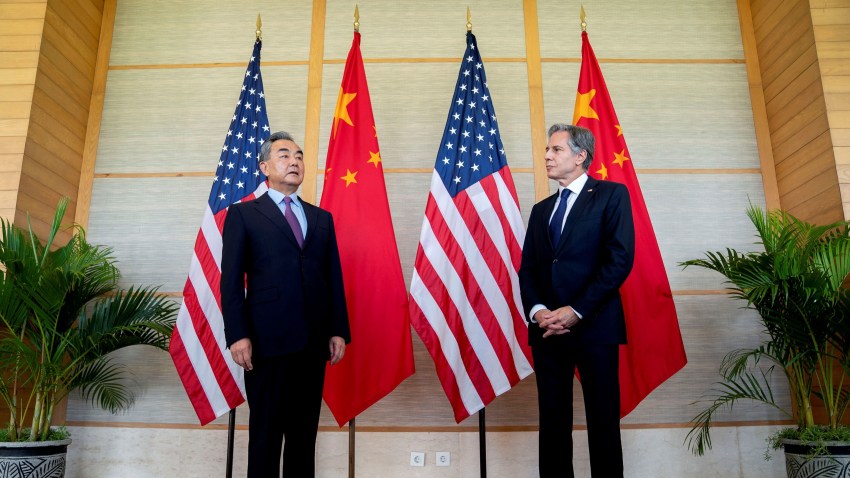Chinese Foreign Minister Wang Yi and U.S. Secretary of State Anthony Blinken spoke by telephone Sunday, marking the first high-level exchange between Beijing and Washington since the 20th National Congress of the Chinese Communist Party ended the previous weekend. At the party meeting, Wang was elevated to the CCP’s politburo and is set to become the head of China’s Central Commission for Foreign Affairs, the party’s top foreign policy body. Ahead of a possible meeting between Chinese President Xi Jinping and his U.S. counterpart, Joe Biden, at the upcoming G-20 summit in Indonesia, the two sides are trying to lower the temperature in their relationship, which has recently been characterized by intensifying competition and tense exchanges.
The U.S. readout of the conversation between Wang and Blinken was brief and emphasized the need to keep channels of communication open between Washington and Beijing, amid a range of global issues that include the war in Ukraine and the Haitian security crisis. China’s readout was broadly similar in tone, albeit with one slight difference: a suggestion by a newly promoted Wang for Blinken to carefully study Xi’s 20th Party Congress report.
The first time Biden met Xi in person was more than a decade ago in 2011, when he visited Beijing as U.S. vice president. At the time, Xi, too, was his country’s second-in-command, serving as No. 2 to then-leader Hu Jintao in a Communist Party that had yet to be completely reshaped by “Xi Jinping Thought.” At the time, the meeting between the two deputies was cordial and unremarkable, and if there were points of divergence, they were addressed in the optimistic spirit of collaboration and open engagement that then characterized U.S.-China relations. Due to the respective ranks of the two men in 2011, they lacked the leverage to shape decisions on foreign policy. Nevertheless, business cooperation and market access were the main items on the agenda, with the mutual economic benefits that both economies stood to gain placed front and center.

